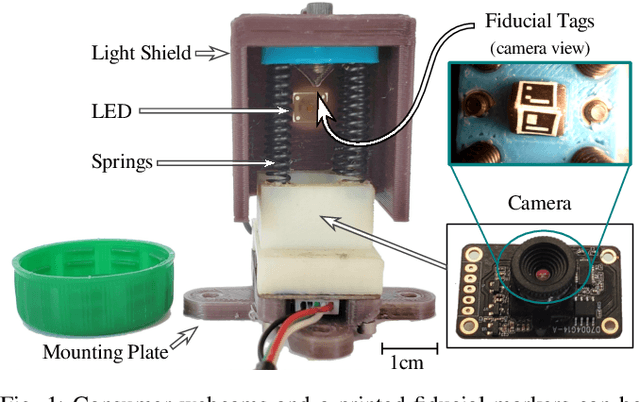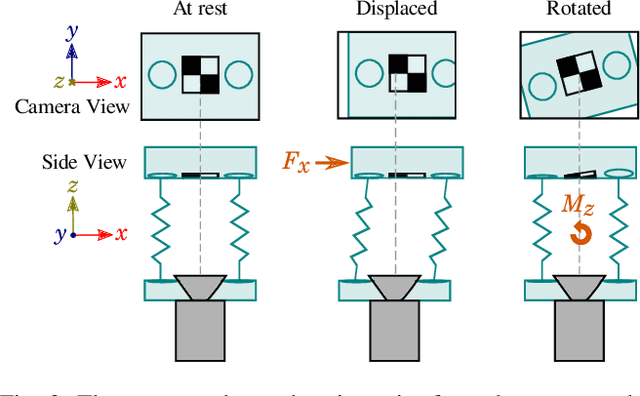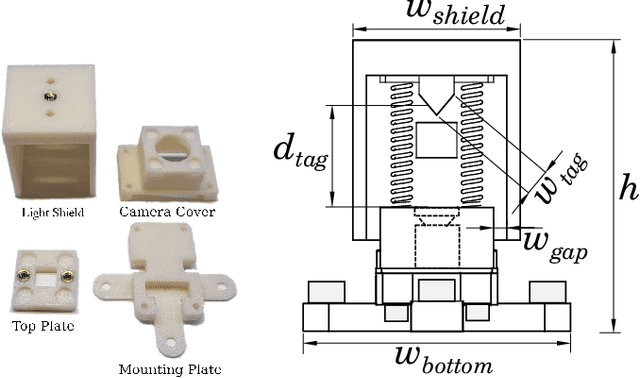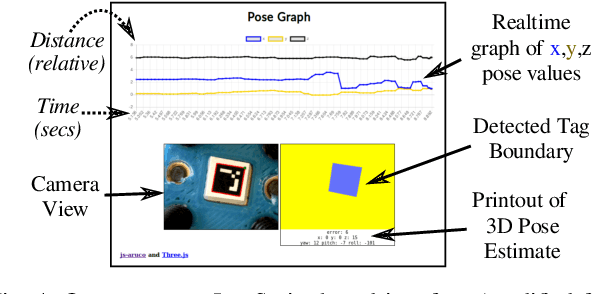Low-Cost Fiducial-based 6-Axis Force-Torque Sensor
Paper and Code
May 28, 2020



Commercial six-axis force-torque sensors suffer from being some combination of expensive, fragile, and hard-to-use. We propose a new fiducial-based design which addresses all three points. The sensor uses an inexpensive webcam and can be fabricated using a consumer-grade 3D printer. Open-source software is used to estimate the 3D pose of the fiducials on the sensor, which is then used to calculate the applied force-torque. A browser-based (installation free) interface demonstrates ease-of-use. The sensor is very light and can be dropped or thrown with little concern. We characterize our prototype in dynamic conditions under compound loading, finding a mean $R^2$ of over 0.99 for the $F_x, F_y, M_x$, and $M_y$ axes, and over 0.87 and 0.90 for the $F_z$ and $M_z$ axes respectively. The open source design files allow the sensor to be adapted for diverse applications ranging from robot fingers to human-computer interfaces, while the sdesign principle allows for quick changes with minimal technical expertise. This approach promises to bring six-axis force-torque sensing to new applications where the precision, cost, and fragility of traditional strain-gauge based sensors are not appropriate. The open-source sensor design can be viewed at http://sites.google.com/view/fiducialforcesensor.
 Add to Chrome
Add to Chrome Add to Firefox
Add to Firefox Add to Edge
Add to Edge